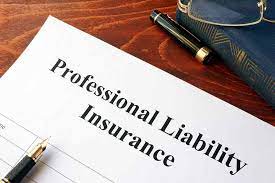House insurance provides coverage for people who are renting a house or an apartment. It is a policy that covers personal belongings, liability, and additional living expenses in case of a covered event, such as a fire or theft. These can also protect one against legal claims related to the rental property. The cost of house rental insurance varies depending on the coverage and the insurance provider. Here we’ll discuss all you need to know about the best house rental insurance coverage for 2023.
What is House Rental Insurance?
House rental insurance, also known as renter’s insurance or tenant insurance. This is a type of insurance policy designed to protect individuals who are renting a house or apartment. While the landlord’s insurance covers the physical structure of the property, it does not extend coverage to the personal belongings or liability of the tenant. Renter’s insurance fills this gap by providing coverage for a tenant’s personal property and offering liability protection.
How House Rental Insurance Works
House rental insurance works by providing financial protection to individuals who are renting a house or apartment.
#1. Choosing Coverage
As a renter, you can select a renter’s insurance policy based on your specific needs. This includes determining the coverage limits for your personal property, liability protection, and any additional coverage options you may require.
#2. Paying Premiums
Once you have chosen a renter’s insurance policy, you will be required to pay regular premiums to the insurance company. Premiums are paid monthly or annually, depending on the terms of your policy.
#3. Personal Property Coverage
Renter’s insurance provides coverage for your personal belongings, such as furniture, electronics, clothing, and appliances. If your belongings are damaged, destroyed, or stolen due to covered events (e.g., fire, theft, vandalism). You can file a claim with your insurance company.
#4. Claim Process
In the event of a covered loss, you will need to file a claim with your insurance company. This usually involves contacting the insurer, providing details of the incident, and submitting any required documentation (e.g., receipts, photographs, police reports).
#5. Deductible
Renter’s insurance often includes a deductible, which is the amount you are responsible for paying out of pocket before your insurance coverage kicks in.
#6. Reimbursement
If your claim is approved, the insurance company will provide reimbursement for the covered losses based on the terms and conditions of your policy. This may involve either replacing the damaged or stolen items or providing you with the cash value or the actual cost value of the items, depending on your policy.
#7. Liability Protection
Renter’s insurance also offers liability protection. If someone is injured while visiting your rented property, you are found legally responsible. Your insurance can help cover medical expenses, legal fees, and other costs associated with a liability claim or lawsuit.
Features of House Rental Insurance
#1. Personal Property Coverage
Renter’s insurance helps protect your personal belongings. Such as furniture, electronics, clothing, and appliances, from various perils like fire, theft, vandalism, or certain types of water damage. If your belongings are damaged or stolen, the insurance company will reimburse you for their value.
#2. Liability Protection
Renter’s insurance also offers liability coverage, which protects you if someone is injured on the rented property and you are found legally responsible. It can help cover medical expenses, legal fees, and other costs associated with a liability claim or lawsuit.
#3. Additional Living Expenses
If your rented house or apartment becomes uninhabitable due to a covered peril, such as a fire, renter’s insurance can cover your additional living expenses. This may include hotel bills, temporary rentals, or other necessary accommodations until your place becomes livable again.
#4. Medical Payments Coverage
This coverage provides payment for medical expenses if a guest or visitor is injured on your rented property, regardless of who is at fault. It can help cover minor injuries and medical treatments without the need for a lawsuit.
#5. Coverage Limits and Deductibles
Renter’s insurance policies have coverage limits, which represent the maximum amount the insurance company will pay for a claim. Policies also include deductibles, which are the amount you must pay out of pocket before the insurance coverage kicks in.
#6. Additional Coverage Options
Some renter’s insurance policies offer additional coverage options. Such as coverage for high-value items (e.g., jewelry, electronics), identity theft protection, or coverage for specific perils like earthquakes or floods.
#7. Guest Property Coverage
Renter’s insurance may extend coverage to the personal belongings of guests or visitors who are temporarily staying in your rented property. This coverage can protect their items if they are damaged, stolen, or destroyed.
#8. Pet Liability Coverage
Some renter’s insurance policies offer coverage for liability claims related to your pets. If your pet causes damage or injury to others, this coverage can help protect you from financial liabilities.
Remember that the specific features and coverage options can vary depending on the insurance company and the policy you choose. It’s important to carefully review the policy documents and consult with the insurance provider to understand the complete range of features and coverage offered by your renter’s insurance policy.
House Rental Insurance Cost
The average cost of renters insurance in the United States ranges from $12 to $30 per month, or $148 to $360 per year.
The cost of house rental insurance can vary based on several factors.
Factors to Be Considered
These factors include:
#1. Location
The area where you live plays a role in determining the cost of renter’s insurance. Locations with higher crime rates or higher risk of natural disasters may result in higher insurance premiums.
#2. Coverage Limits
The coverage limits you choose for your personal property and liability will affect the cost of the insurance. Higher coverage limits generally lead to higher premiums.
#3. Deductible
The deductible is the amount you are responsible for paying out of pocket before your insurance coverage kicks in. A higher deductible results in a lower premium, while a lower deductible will lead to a higher premium.
#4. Value of Personal Property
The total value of your personal belongings that you want to insure will impact the cost. If you have expensive items or a large amount of personal property, your premium may be higher.
#5. Discounts
Some insurance companies offer discounts that can lower the cost of renter’s insurance.
Cheap House Rental Insurance
When searching for affordable house rental insurance, there are a few strategies you can consider:
- Shop Around to obtain quotes from multiple insurance companies to compare prices.
- Consider bundling your renter’s insurance with other insurance policies, such as auto insurance, from the same company
- Opt for a higher deductible. This can lower your monthly premium.
- Evaluate the value of your personal property and choose coverage limits that align with your needs.
- Ensure that your rental property has safety features such as smoke detectors, fire extinguishers, and deadbolt locks.
- Maintain a Good Credit Score. A good credit score can often result in lower insurance premiums.
Several insurance companies are known for offering affordable house rental insurance. While the prices may vary depending on your location and specific circumstances.
Companies Offering Cheaper Rental Services
Here are companies that are offering cheap rental insurance :
#1. Lemonade
Lemonade is a digital insurance company that offers affordable renter’s insurance. They provide a simple online platform for obtaining a quote and purchasing coverage.
#2. State Farm
State Farm is a well-known insurance company that offers renter’s insurance at competitive rates. They have a wide network of agents and provide personalized service.
#3. Geico
Geico is primarily known for auto insurance, but they also offer renter’s insurance. They often provide discounts for bundling renter’s insurance with auto insurance policies.
#4. Progressive
Progressive is an insurance company that offers affordable renter’s insurance. They have a user-friendly online platform and provide various coverage options.
#5. All State
Allstate is a well-established insurance company that offers renter’s insurance at competitive prices. They offer customizable coverage options and have a wide network of agents.
Vacation House Rental Insurance
Vacation house rental insurance, also known as short-term rental insurance. This is a type of insurance policy specifically designed to protect homeowners who rent out their properties on a short-term basis. Such as through platforms like Airbnb, VRBO, or HomeAway. This type of insurance is different from traditional homeowner’s insurance. It takes into account the unique risks associated with short-term rentals.
Characteristics of Vacation House Rental Insurance
#1. Property Damage Coverage
Vacation house rental insurance provides coverage for damage to your property caused by guests. Such as accidental damage, vandalism, or theft. This coverage helps protect the property and may include repairs or replacement costs.
#2. Liability Protection
Liability coverage helps protect you if a guest is injured on your property and holds you responsible. It can cover medical expenses, legal fees, and other costs associated with liability claims or lawsuits.
#3. Loss of Rental Income
If your vacation rental becomes uninhabitable due to a covered event, such as a fire or flood. This coverage can reimburse you for the lost rental income during the period of repairs or restoration.
#4. Host Protection
Some insurance policies include host protection, which covers your liability as a host for incidents that occur during a guest’s stay. Such as injuries or property damage caused by the guest.
What is the Meaning of Renters Insurance?
Renters insurance is a type of insurance policy designed to protect individuals who are renting a house or apartment. It provides coverage for their personal belongings, liability for injuries or damage to others, and additional living expenses. That is in the case of a covered event such as a fire or theft. It is a way for renters to protect their possessions and financial well-being in the event of unexpected events. It is affordable compared to other types of insurance.
Is Rental Insurance Good?
Yes, rental insurance is generally considered to be a good investment for renters. It offers valuable protection for your personal belongings and provides liability coverage in case someone is injured on your rented property. It can cover additional living expenses if your rental becomes uninhabitable due to a covered event. Renter’s insurance is often affordable, offering peace of mind and financial security in case of unexpected incidents. However, it’s important to review the specific terms and coverage of the policy to ensure it meets your needs.
Is Lemonade A Real Insurance Company?
Yes, Lemonade is a real insurance company. It is a licensed insurance carrier that operates as a full-stack digital insurance company. Lemonade offers various insurance products, including renter’s insurance, homeowner’s insurance, condo insurance, pet insurance, and more. They utilize technology and artificial intelligence to simplify the insurance process and provide a user-friendly experience for their customers. Lemonade is known for its transparent pricing, quick claims process, and socially responsible business model, as they donate a portion of unclaimed premiums to charitable causes through its Giveback program.
Why Do People Have Renters Insurance?
Here are the reasons why people have renters insurance:
- Renters’ insurance provides coverage for personal belongings, such as furniture, electronics, clothing, and appliances.
- Renters insurance offers liability protection.
- Renters insurance can cover your additional living expenses. If your rented house or apartment becomes uninhabitable due to a covered event.
- Renters’ insurance is generally affordable, with monthly premiums typically ranging from $15 to $30.
- Some landlords may require tenants to have renters insurance as a condition of the lease agreement.
- Renters’ insurance offers peace of mind by providing financial protection against unforeseen events.
What is Landlord Insurance Good For?
ConcLandlord insurance, also known as dwelling insurance or rental property insurance. It is specifically designed to protect landlords who own residential properties and rent them out to tenants. Landlord insurance is designed to protect property owners who rent out their homes or apartments by providing coverage for property damage, liability, lost rental income, and other types of risks associated with rental properties. Landlord insurance helps to provide financial protection for the property owner and may also cover legal expenses related to disputes with tenants. It is highly recommended for anyone who owns rental properties to purchase landlord insurance to protect their investment and mitigate any potential financial risks associated with renting out their property.
Conclusion
The best house rental insurance in 2023, some of the top renter’s insurance companies include State Farm, Lemonade, Geico, Allstate, and Progressive. It’s important to evaluate the coverage options and premiums offered by these companies to determine which one best fits your individual needs. It is advisable to review discounts, add-on coverages, and other benefits offered by insurance providers to find the best value for your money.
The best house rental insurance coverages include comprehensive property coverage, liability protection, personal property coverage, loss of use coverage, and additional living expenses coverage. These coverages aim to protect the rented property against damage or loss. And to also provide financial support in case of lawsuits or liability claims, and compensate for personal belongings that are damaged or stolen. It assists with alternative accommodations if the rental becomes uninhabitable, and covers additional expenses incurred due to the loss of use of the rental property.
Related Articles
- CAPITAL ONE CAR RENTAL INSURANCE: How It Works
- TOP BEST 2023 VACATION RENTAL SOFTWARE: Reviews & Pricing
- How to Buy Rental Property With No Money in 2023: Tips & Strategies
- BUSINESS RENTERS INSURANCE: The Complete Guide & Why You Need One
- VACANT HOME INSURANCE: A Complete Guide






